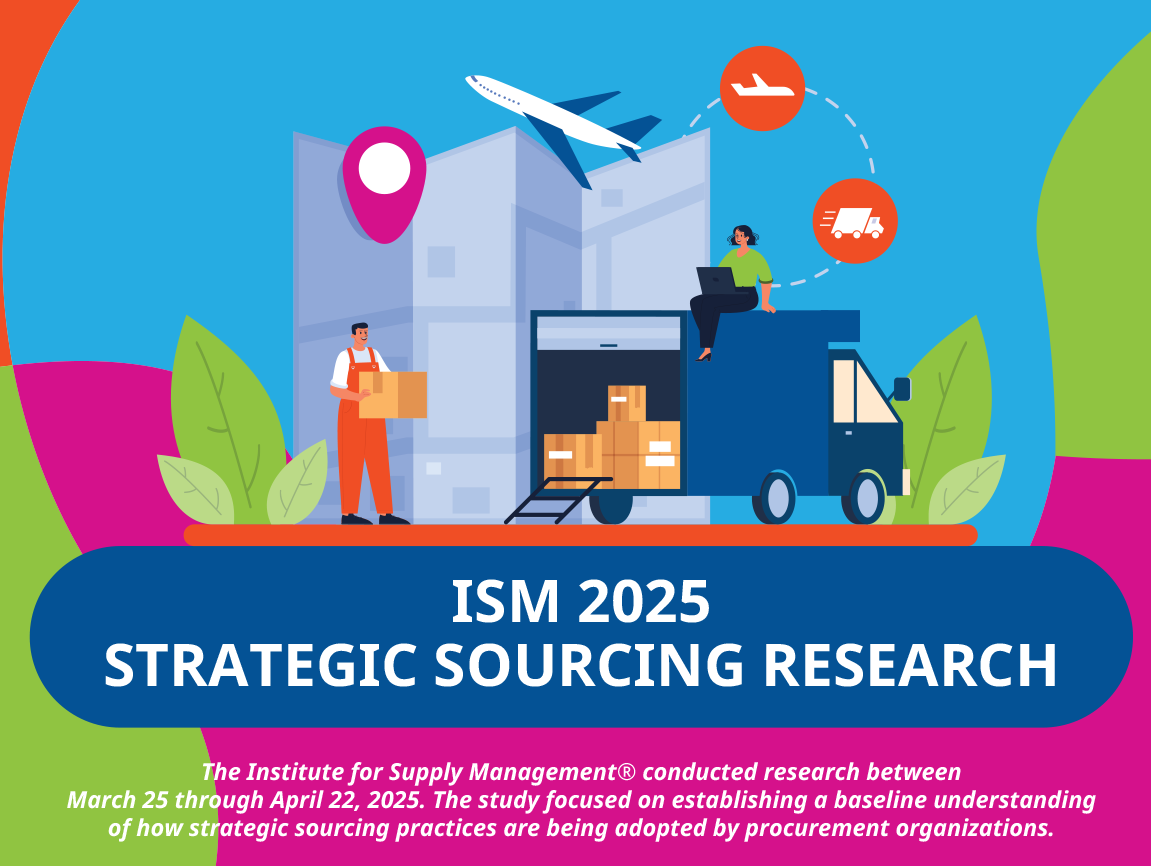Strategic Sourcing Research Center
This page is a centralized resource page dedicated to Institute for Supply Management®’s strategic sourcing research.
Gathering news and resources on the information you should know and education and research you can access to learn more about strategic sourcing within supply management. Join the conversation, share your experience, and ask questions through our social channels or by connecting with us at ask@ismworld.org.
View 2025 Infographic View Last Year’s Strategic Sourcing Research
ISM RESEARCH SAYS...
The Institute for Supply Management® (ISM®) collected information from supply management professionals around strategic sourcing. The survey was conducted between March 25 and April 22, 2025. Below are some highlights from the research.
76%
Of respondents say their organization has created or implemented a strategic sourcing initiative.
59%
Say the level of spend data visibility their sourcing organization has is good or excellent.
80%
Of respondents report that their sourcing organizations resiliency plan includes risk analysis/management.
49%
Say their sourcing organization is viewed as a valued strategic partner.

ISM Strategic Sourcing Research
Articles
-
Supply Chain News Roundup: Truck Tariffs and More
October 07, 2025Articles -
Impact Of Interest-Rate Cut Could Be Minimal Amid Current Chaos
September 22, 2025Articles -
Tariffs Deepen Global Trade Fault Lines, Forcing Businesses to Adapt
September 16, 2025Articles


